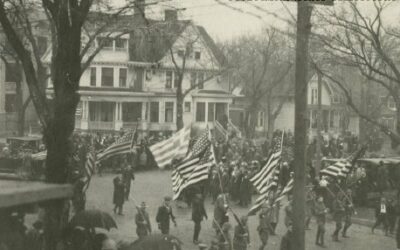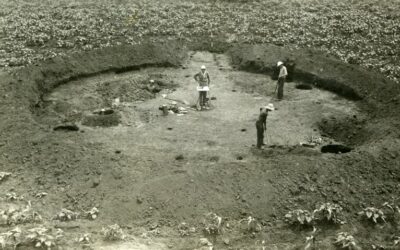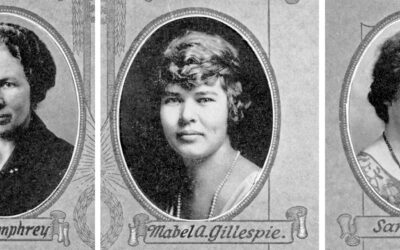Sometimes it takes a good guy with a chicken to stop a bad guy with a chicken. Consider this strange tale about the founder of today’s Lincoln Journal Star and his revenge on his hen-raising neighbors.
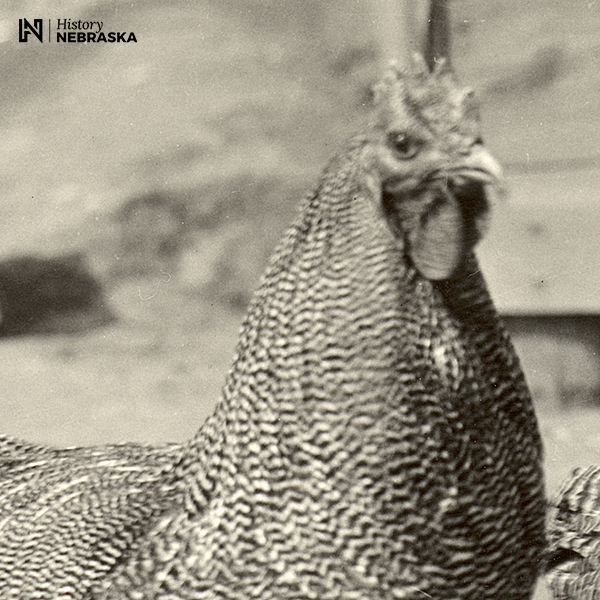
Detail of RG3316-1, undated photo from the yard of 4123 N. 36th Ave., apparently in Omaha.
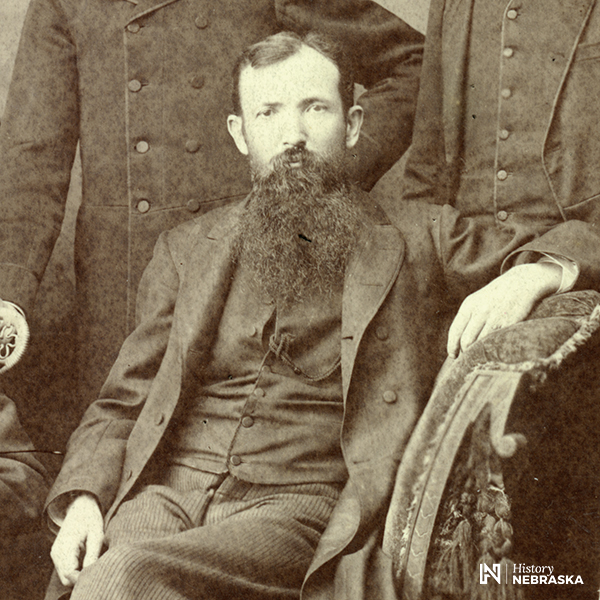
Charles H. Gere. Detail of RG956-13-2
Sometimes it takes a good guy with a chicken to stop a bad guy with a chicken. Consider this strange tale about the founder of today’s Lincoln Journal Star and his revenge on his hen-raising neighbors.
Town and city residents used to keep chickens and even milk cows on their property. On April 12, 1890, journalist J. D. Calhoun of the Lincoln Weekly Herald told a story that he attributed to Charles H. Gere, publisher of the Nebraska State Journal (and future namesake of Lincoln’s Gere Library):
For some years after I was married I tried to do a little gardening both for the exercise involved and the product of the labor. I was greatly annoyed every spring by the ravages of my neighbors’ hens. I shooed them out, I remonstrated with their owners, I threw rocks, I built fences, I bought a trained dog, but all in vain. All summer I planted and hoed and watered in vain. . . .
Finally I began to dream of revenge and an inspiration came to me. That spring I planted no garden, but I went to a butcher and had him select for me three dozen of the oldest and biggest Cochin hens he got into his shop. It was a fine lot, not one in it that weighed less than ten pounds. Just at the right juncture in the spring I had them put in my barn. The quarter in which I live was more village-like than it is now and all my neighbors had more or less garden as well as chickens. They also had children who minded them off the gardens—except mine.
Just when all the garden stuff was in a fair state of early growth, tender succulent and tempting to hens, when the children were all at school the men down town and the women busy, I opened my barn door and turned out my hens . . . I had inadvertently forgotten to feed or water them for three days, and within twenty minutes after they were released there wasn’t a green thing above ground within half a block of me. I collected my hens into the barn without attracting attention, and when the ravages were discovered each neighbor attributed it to the chickens of the other. Next evening there was a neighborly mass meeting, and a good deal of excitement, but a solemn agreement was made and ratified never, never, to keep any more chickens. I had the butcher come up and haul mine away after night, and to this day the people in the vicinity of J and Seventeenth [in Lincoln] don’t know to whom they owe their deliverance from the chicken scourge.
Did it really happen that way? Or was it just an amusing story? It’s hard to say, but it speaks to a genuine movement in that era to regulate the presence of farm animals within city limits.


